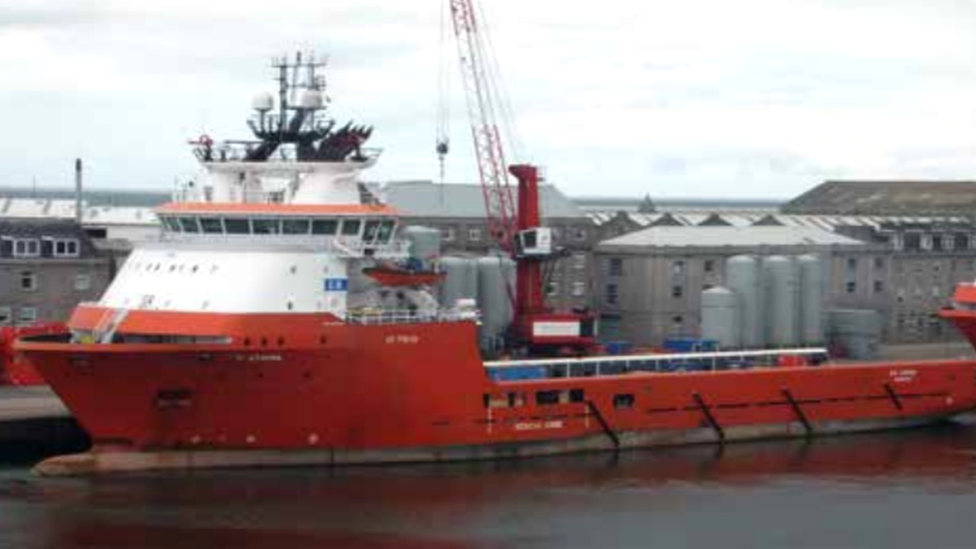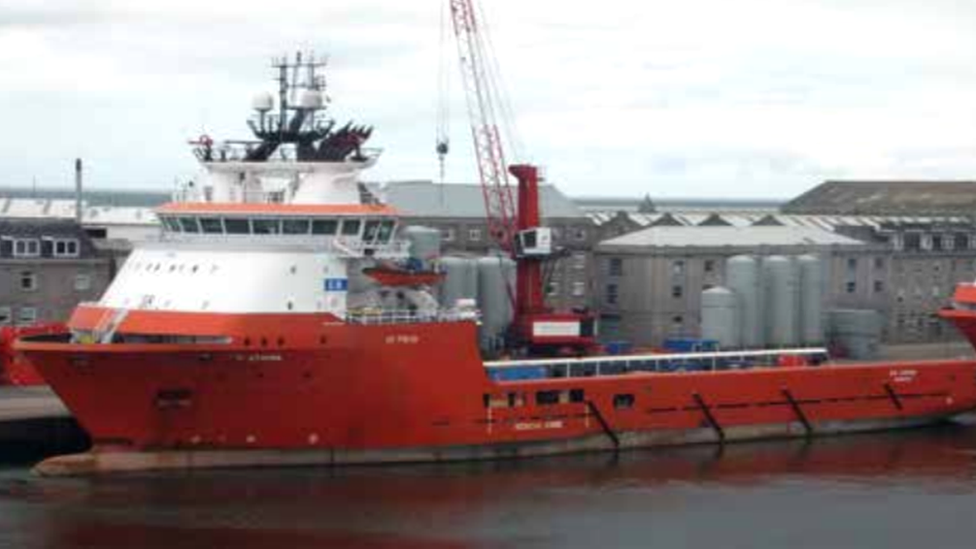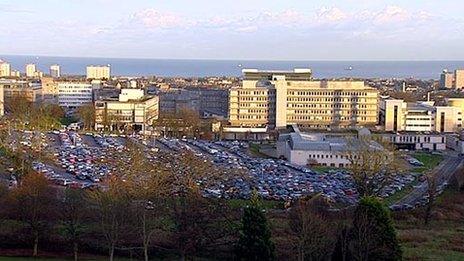Crushed crewman's fatal injuries underestimated, sheriff says
- Published

The accident happened on the ER Athina in 2012
Injuries suffered by a crew member who later died after being crushed on an offshore vessel were underestimated, a sheriff has said.
Pjero Kurida, 29, died in hospital after being crushed while the ER Athina was off Aberdeen in 2012.
Coastguards were not alerted and he was instead taken ashore by a fishing boat.
Following an inquiry, a sheriff recommended that merchant vessels ensure informed responses to medical incidents of uncertain severity.
Croatian Mr Kurida had been in a fast rescue craft (FRC) for painting repairs to the supply vessel, after it was earlier damaged in Aberdeen harbour.
The inquiry last year heard that Mr Kurida, the vessel's Croatian bosun, screamed as he was crushed between the FRC and the hull.
It was suspected he might have broken ribs. The shipping agents in Aberdeen were contacted to arrange transport ashore for hospital treatment.
Not survivable
About 55 minutes after the accident, Mr Kurida was transferred to a fishing boat, Skua, to be taken ashore.
He was taken to Aberdeen Royal Infirmary, and was still alert but pale. However, his condition quickly deteriorated and he became unresponsive and went into cardiac arrest.
Despite the efforts of hospital staff, he was pronounced dead less than an hour after arrival.
In his written determination, external, Sheriff Ian Wallace said the cause of death was chest and abdominal crush injuries.
A pathologist said the injuries were ultimately not survivable.
Sheriff Wallace said the causes of the accident included the motion of the sea and the decision that was taken to paint over damage on the hull of the Athina while at open sea.
The sheriff said precautions which might realistically have prevented his death included the hull being painted when the vessel was in the protected waters of Aberdeen Harbour.
He said another option would have been a painting platform being suspended from the deck.
He added that there was no proper risk assessment carried out.
'Significant delay'
"Even though Mr Kurida had suffered chest injuries and had clearly been subject to significant forces, the accident was not treated as a medical emergency," the sheriff said.
"The nature of Mr Kurida's injuries was underestimated. Rather than calling for emergency assistance, the master of the Athina contacted a fishing vessel to take Mr Kurida to hospital. This resulted in a significant delay in Mr Kurida arriving at hospital.
"Those responsible for operating merchant vessels in UK waters should have in place the necessary training, guidance, procedures and rules to ensure informed and appropriate responses to medical incidents of uncertain severity.
"These measures should ensure that an appropriate assessment is carried out as quickly as possible so that potential medical emergencies are treated as such."
In other circumstances, the sheriff said the failure to immediately seek emergency medical assistance could have been the "difference between life and death".
The sheriff added that it was clear all those involved with the Athina were "deeply affected" by Mr Kurida's death.
He was described as a "dedicated and respected" seaman.
"I would therefore conclude by expressing my condolences, belated though they are, to Mr Kurida's family, friends and colleagues," the sheriff said.
"The time that has passed does nothing to diminish the tragedy of his death."
Related topics
- Published10 November 2021

- Published7 October 2021

- Published6 October 2021

- Published3 March 2021

- Published27 January 2021

- Published11 June 2012
